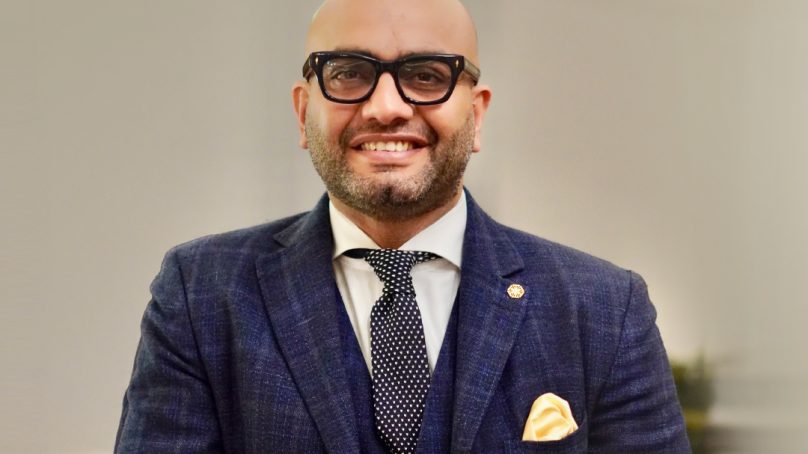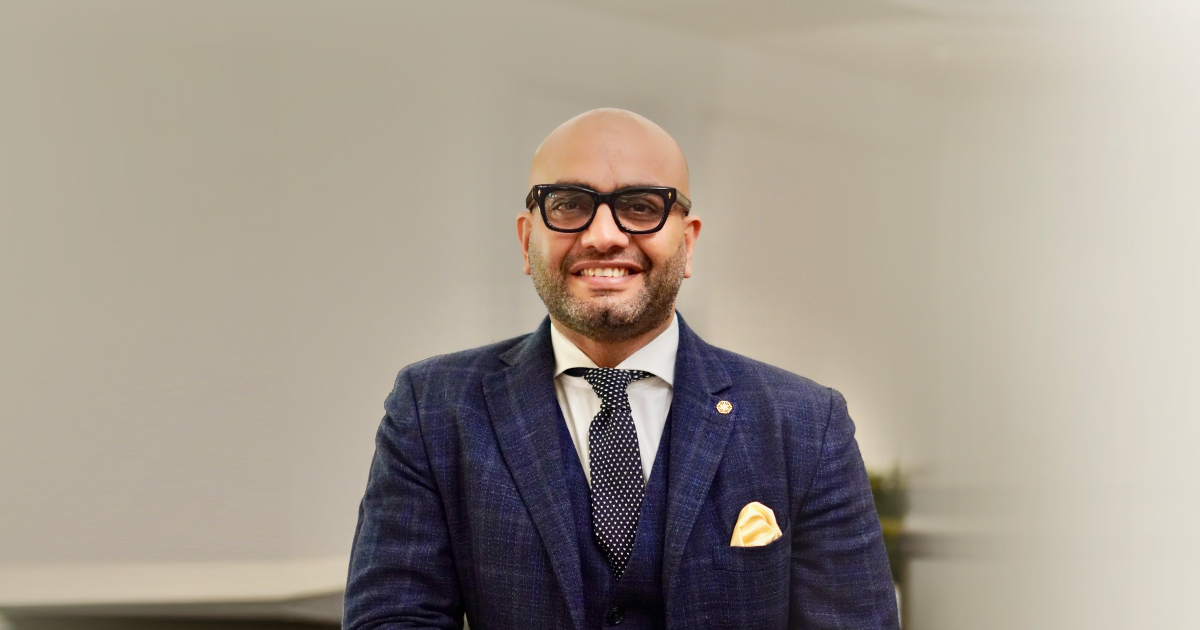Having achieved one of its aims of opening up to 30 hotels annually in India in recent years, Taj Hotels is now firmly focused on MENA for the next phase of its expansion. Saurabh Tiwari, area director for the Middle East and CIS at Taj Hotels, tells HN what the luxury hotel chain has planned for the region and how it is adapting to meet the changing demands of today’s travelers.
How has your career path prepared you for your current role?
Preparing for a leadership role is a journey defined by experiences, challenges and lessons that shape one’s ability to navigate complexities and inspire teams. One of the most significant aspects of my professional journey has been the exposure to diverse markets, each with unique cultural and consumer dynamics. These roles provided me with an understanding of how local traditions, preferences and expectations influence guest experiences. Such insights are essential in the Middle East, a region renowned for its rich heritage and cosmopolitan outlook. The ability to adapt operational strategies to align with these nuances has become a foundation of my leadership.
What initiatives have you introduced to strengthen employee engagement?
I am a believer in the philosophy that happy employees lead to happy customers. One key focus of mine has been creating a culture of recognition, where employee achievements are celebrated through structured rewards programs. Equally important is providing opportunities for professional growth. Training programs, mentorship initiatives and clear career progression plans empower employees to develop their skills and advance within the organization, fostering a sense of purpose and commitment. Open communication is another cornerstone of my approach, along with developing a culture of inclusion. Additionally, to support employee well-being, we have prioritized initiatives that promote work-life balance, such as wellness programs and access to mental health resources.
How is Taj Hotels accommodating guests’ changing expectations?
The hospitality industry is undergoing a transformation fueled by the dynamic needs of modern travelers. In destinations like Dubai, long stays are on the rise, spurred by the increasing popularity of freelance visas and hybrid work policies. This ‘bleisure’ trend – blending leisure with work – has inspired us to redesign our offerings. Our accommodations now cater to remote work needs, featuring dedicated workspaces, premium Wi-Fi and luxurious environments that balance productivity with relaxation. Guests today also value experiences that go beyond indulgence – activities like culinary classes, art workshops and nature expeditions. These educational endeavors have become the new benchmark of experiential luxury, offering guests meaningful connections and unforgettable moments.
How do you see sustainability trends evolving in hospitality?
Sustainability is rapidly evolving from a value-add to a central expectation in the hospitality industry. Guests today prioritize brands that demonstrate responsibility toward the environment and communities. Beyond environmental efforts, there’s a growing focus on social sustainability, such as supporting local communities and preserving cultural heritage. By integrating sustainability into every facet of operations through Paathya, our sustainability initiative, Taj Hotels ensures its properties not only minimize environmental impact but also contribute positively to the destinations they serve. From energy-efficient technologies and water conservation systems to sourcing ingredients locally and reducing food waste, these practices reflect a long-term commitment to responsible hospitality and eco-conscious travel, reshaping operations, but without compromising luxury.
What other key industry trends are gaining traction?
Wellness tourism is undoubtedly on the rise, with luxury travelers seeking rejuvenation and holistic experiences. Taj Hotels has a long-standing association with wellness, particularly with the integration of Ayurveda and traditional Indian healing practices. The adoption of smart technology is also transforming the hospitality experience. This includes smart rooms, mobile check-ins, contactless payments, AI-driven customer service and more. However, while we recognize that digital innovation drives efficiency, it must never overshadow the essence of human connection and personalization. Culinary innovation is another trend evident. There is a growing demand for authentic and immersive dining experiences, whether through traditional recipes, local ingredients or interactive presentations. The integration of technology is also redefining luxury dining. Chef Pranav, Bombay Brasserie’s head chef, stands out as the first Indian chef to 3D print indigenous recipes, blending advanced technology with traditional culinary practices. Health and wellness-focused cuisine is another trend gaining prominence, with guests favoring nutritious, plant-based and organic options.
What are the key requirements for a successful hotel launch?
Launching a hotel in dynamic regional markets like those in the Middle East requires careful planning, a deep understanding of local nuances and a commitment to brand values. Several critical factors contribute
to a successful hotel launch for us, starting with market research and positioning. Understanding the target audience’s preferences, cultural expectations and market demand is essential to designing offerings that resonate with guests. Each Taj property is carefully positioned to reflect its location’s character, while maintaining the brand’s ethos of luxury and hospitality. Operational excellence and team readiness are equally crucial. Extensive training programs are implemented to ensure staff deliver service that aligns with the brand’s heritage. Pre-opening marketing and brand-building play a large role in establishing a strong presence in the region. For markets like Dubai and Riyadh, where competition is intense, creating excitement through innovative campaigns, collaborations and cultural tie-ins ensures a memorable debut. Another critical factor is adaptability to market dynamics. Regular audits and guest feedback mechanisms help to facilitate continuous improvement.
How does the Indian Hotels Company Limited (IHCL – Taj Hotels’ parent company) choose its locations?
The selection of new locations, including our recent signings in Bahrain and Riyadh, is guided by a thorough evaluation process that aligns with our strategic vision and long-term goals. We don’t want to be
flag-planting, rather we want to work with aligned owners and be in the right places, where we can have sustainable growth. We have opened 25-30 hotels annually in India and now the focus is on the thriving Middle East. We are looking carefully at having branded residences within Dubai, Dubai South and Ras Al Khaimah, but we will always work with strong potential owners who are likeminded, aligned with our vision and understand our brand.
Can you share your project pipeline for the Middle East?
Our three iconic properties in the UAE – Taj Dubai, Taj Exotica Resort & Spa and Taj Jumeirah Lakes Towers Taj Hotels – represent a remarkable journey of growth and expansion across the Middle East. Building on this success, IHCL is now focusing on key markets that include Doha, Muscat and Kuwait City. Our ambitions extend to Saudi Arabia, where Taj launched its landmark 250th property in 2022. With plans to expand in Riyadh and Al Khobar, Taj is targeting five properties across the kingdom. In addition, Taj Hotels launched two new hotels in Bahrain – the Taj resort, a 251-room hotel in Hamala and a 200-room Taj Hotel in Downtown Seef Manama. The Middle East plays a crucial role in the global hospitality industry for several key reasons, including its strategic location at the crossroads of Europe, Asia and Africa. Significant investments in tourism infrastructure underscore the region’s commitment to drawing global visitors. In addition, its rich cultural heritage and ambitious projects continue to elevate its hospitality landscape.

















